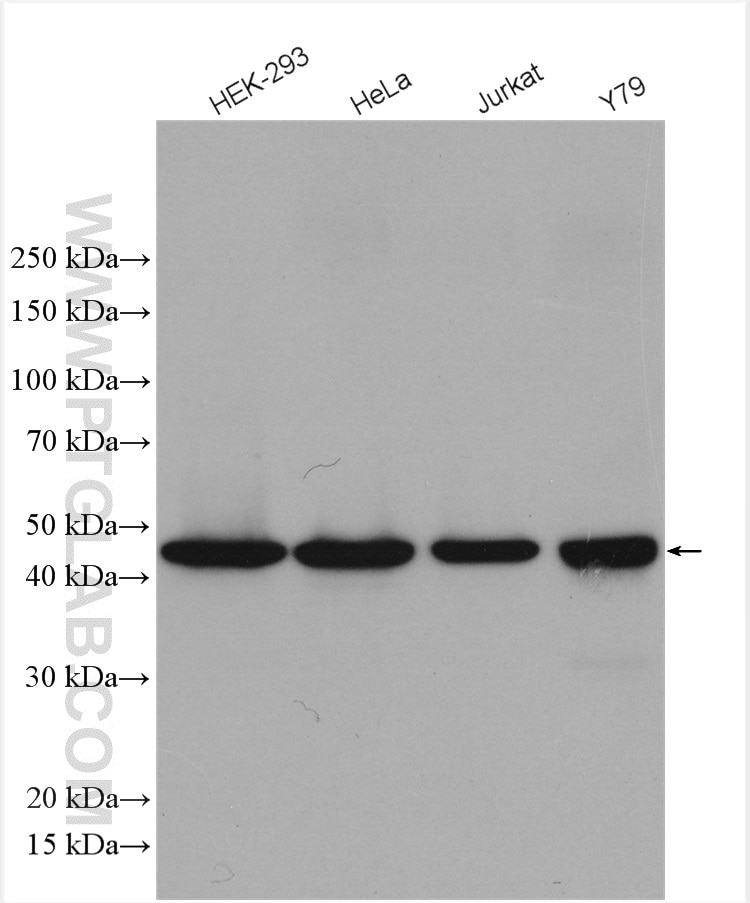ASCC1 Polyklonaler Antikörper
ASCC1 Polyklonal Antikörper für ELISA
Wirt / Isotyp
Kaninchen / IgG
Getestete Reaktivität
human, Maus, Ratte
Anwendung
WB, ELISA
Konjugation
Unkonjugiert
Kat-Nr. : 12301-1-AP
Synonyme
Galerie der Validierungsdaten
Geprüfte Anwendungen
Veröffentlichte Anwendungen
| WB | See 3 publications below |
Produktinformation
12301-1-AP bindet in WB, ELISA ASCC1 und zeigt Reaktivität mit human, Maus, Ratten
| Getestete Reaktivität | human, Maus, Ratte |
| In Publikationen genannte Reaktivität | human |
| Wirt / Isotyp | Kaninchen / IgG |
| Klonalität | Polyklonal |
| Typ | Antikörper |
| Immunogen | ASCC1 fusion protein Ag2946 |
| Vollständiger Name | activating signal cointegrator 1 complex subunit 1 |
| Berechnetes Molekulargewicht | 45.5 kDa |
| Beobachtetes Molekulargewicht | 45.5 kDa |
| GenBank-Zugangsnummer | BC012291 |
| Gene symbol | ASCC1 |
| Gene ID (NCBI) | 51008 |
| Konjugation | Unkonjugiert |
| Form | Liquid |
| Reinigungsmethode | Antigen-Affinitätsreinigung |
| Lagerungspuffer | PBS mit 0.02% Natriumazid und 50% Glycerin pH 7.3. |
| Lagerungsbedingungen | Bei -20°C lagern. Nach dem Versand ein Jahr lang stabil Aliquotieren ist bei -20oC Lagerung nicht notwendig. 20ul Größen enthalten 0,1% BSA. |
Hintergrundinformationen
ASCC1 (also known as p50) is a subunit of an uncharacterized complex, the activating signal co-integrator complex (ASCC). ASCC1 has been reported as regulator fo NF-kB pathway and potently inhibits the expression of NF-kB target genes. Mutations in ASCC1 in patients with Barrett esophagus (BE) have been identified as a risk factor of esophageal adenocarcinoma (EAC).
Protokolle
| Produktspezifische Protokolle | |
|---|---|
| WB protocol for ASCC1 antibody 12301-1-AP | Protokoll herunterladen |
| Standard-Protokolle | |
|---|---|
| Klicken Sie hier, um unsere Standardprotokolle anzuzeigen |
Publikationen
| Species | Application | Title |
|---|---|---|
Nat Commun Extended DNA threading through a dual-engine motor module of the activating signal co-integrator 1 complex | ||
Mol Cell Unresolved stalled ribosome complexes restrict cell-cycle progression after genotoxic stress. |


